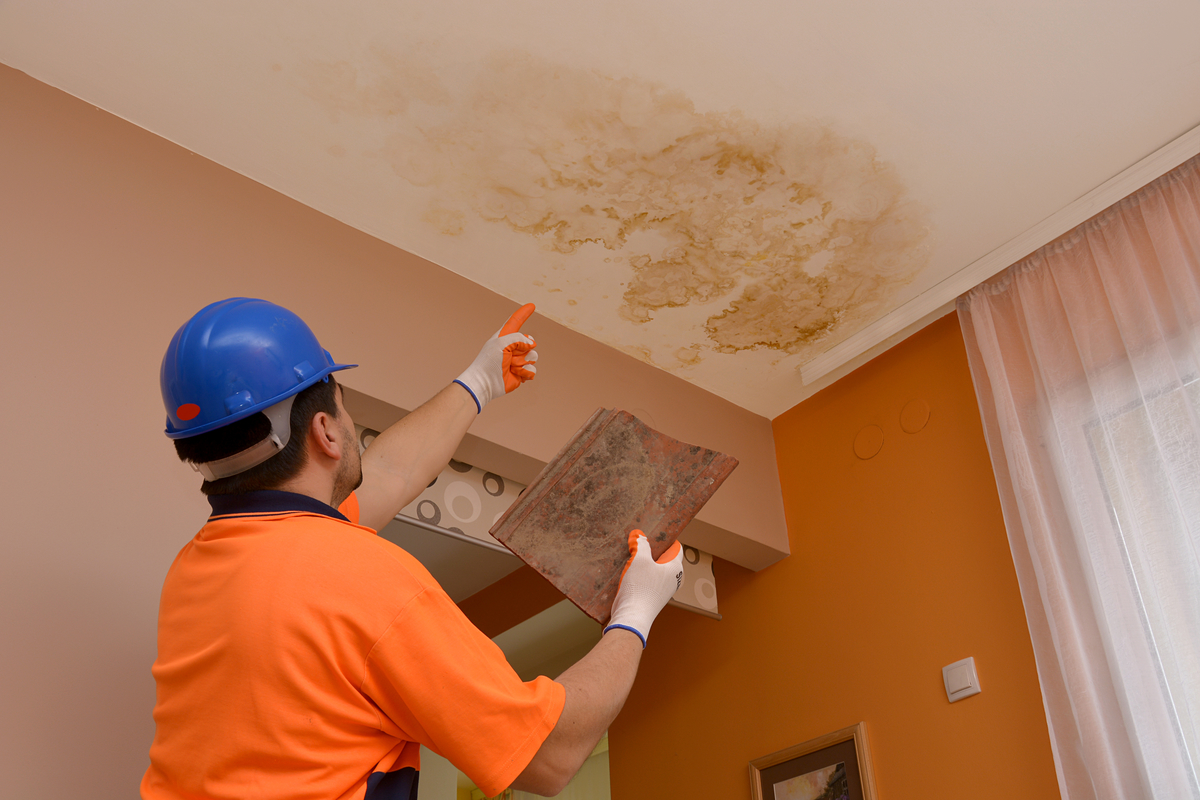Your Residential Most Frequent Water Leak Causes: Analysis
Your Residential Most Frequent Water Leak Causes: Analysis
Blog Article
We've come across this post relating to How to detect water leaks in your home down the page on the internet and thought it made good sense to talk about it with you on this site.

Leaks not only trigger waste of water however can likewise trigger unneeded damage to your house as well as promote undesirable organic growth. Water leaks could go undetected since most of the pipework in our house is concealed. By understanding and looking for day-to-day circumstances that trigger leakages, you can secure your residence from future leaks as well as unneeded damages. Today, we will consider six leakage causes that might be causing your pipes to trickle.
Instantaneous temperature level modifications.
Severe temperature changes in our pipes can create them to broaden and also acquire all of a sudden. This expansion and also contraction may create cracks in the pipes, specifically if the temperature are below cold.
Rusty water systems
As time passes by, your plumbing system ages as well as deterioration such as corrosion may start eating away the pipes. This could be the reason for discoloration or warping on your pipes. This asks for an evaluation with your plumber immediately. If our plumbing system is old, take into consideration changing the pipelines since they go to a greater risk of corrosion than the more recent models.
Malfunctioning Pipe Joints
The factor at which your pipes attach is often the weakest web link in the waterline. Pipe joints can degrade over time, leading to water leakages. Sadly, most of pipeline joints are not easily noticeable. If you have loud pipelines that make ticking or banging sounds, especially when the hot water is switched on, your pipeline joints are possibly under a great deal of stress. It is recommended to have your plumber examine your system yearly.
Trespassing origins
The majority of water leakages start outside your home instead of inside it. If you observe an abrupt decline in water pressure, say in your faucet, take some time to go out and also examine your yard. You may discover damp patches or sinkholes in your backyard, and that could imply that tree origins are getting into water lines creating water to seep out. You can have your plumber look for intrusion, particularly if you have trees or hedges near your property.
Poor Water Connectors
At times, a leakage can be caused by loose hose pipes as well as pipes that supply your appliances. In case of a water links leakage, you may notice water running straight from the supply line or pools around your home appliances.
Clogged Drains
Obstructed drains could be aggravating as well as inconveniencing, yet they can occasionally end up creating an overflow resulting in break pipes. Maintain removing any type of products that may decrease your drains pipes that could block them to stay clear of such hassles.
All the above are sources of leakages however not all water leakages arise from plumbing leakages; some leaks might come from roof covering leakages. All leakages should be repaired right away to prevent water damages.
Leakages not just create waste of water yet can likewise cause unneeded damage to your house and also promote unwanted natural development. By understanding as well as looking for daily circumstances that trigger leaks, you can safeguard your house from future leakages and also unneeded damage. Today, we will look at 6 leakage triggers that may be creating your pipes to drip.
At times, a leakage can be triggered by loosened pipes and pipelines that supply your devices. In situation of a water connections leak, you might discover water running straight from the supply line or puddles around your devices.
How To Check For Water Leak In Your Home
How To Check for Leaks
The average household's leaks can account for nearly 10,000 gallons of water wasted every year and ten percent of homes have leaks that waste 90 gallons or more per day. Common types of leaks found in the home are worn toilet flappers, dripping faucets, and other leaking valves. These types of leaks are often easy to fix, requiring only a few tools and hardware that can pay for themselves in water savings. Fixing easily corrected household water leaks can save homeowners about 10 percent on their water bills.
To check for leaks in your home, you first need to determine whether you're wasting water and then identify the source of the leak. Here are some tips for finding leaks:
Take a look at your water usage during a colder month, such as January or February. If a family of four exceeds 12,000 gallons per month, there are serious leaks.
Check your water meter before and after a two-hour period when no water is being used. If the meter changes at all, you probably have a leak.
Identify toilet leaks by placing a drop of food coloring in the toilet tank. If any color shows up in the bowl after 10 minutes, you have a leak. (Be sure to flush immediately after the experiment to avoid staining the tank.)
Examine faucet gaskets and pipe fittings for any water on the outside of the pipe to check for surface leaks.
Undetected water leaks can happen without the home or business owner even realizing. If you suspect a water leak, but not able to find the source. It is time to contact a professional water leak detection service, The Leak Doctor.
How To Find a Water Leak In Your Home
https://www.leakdoctor.com/blog/How-To-Check-For-Water-Leak-In-Your-Home_AE197.html

We hope you enjoyed reading our post about How to Find Water Leaks. Thank you so much for taking a few minutes to read our posting. Sharing is caring. Helping others is fun. Thank you so much for taking the time to read it.
Achieve peace of mind. Report this page